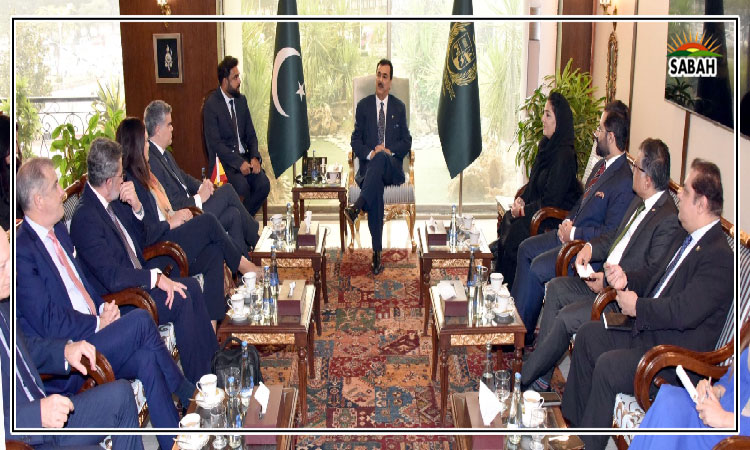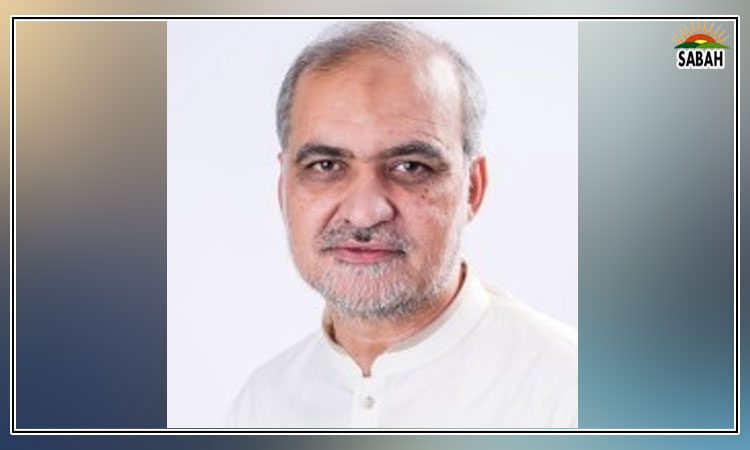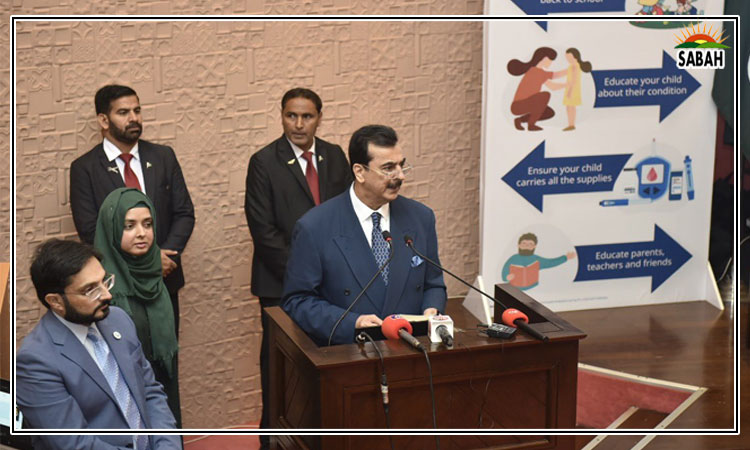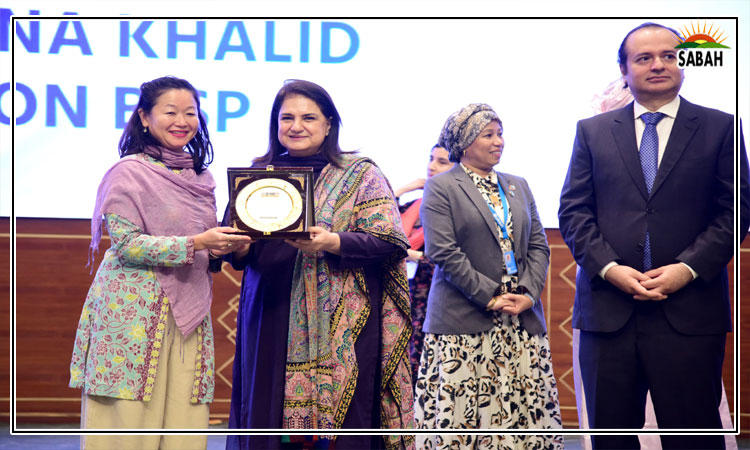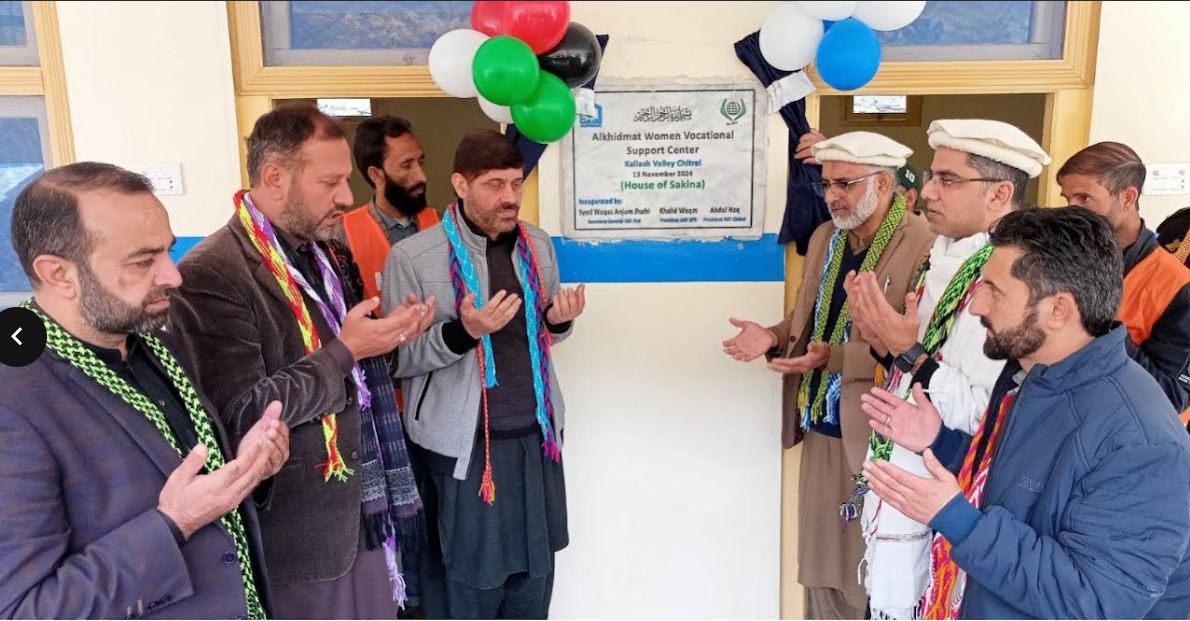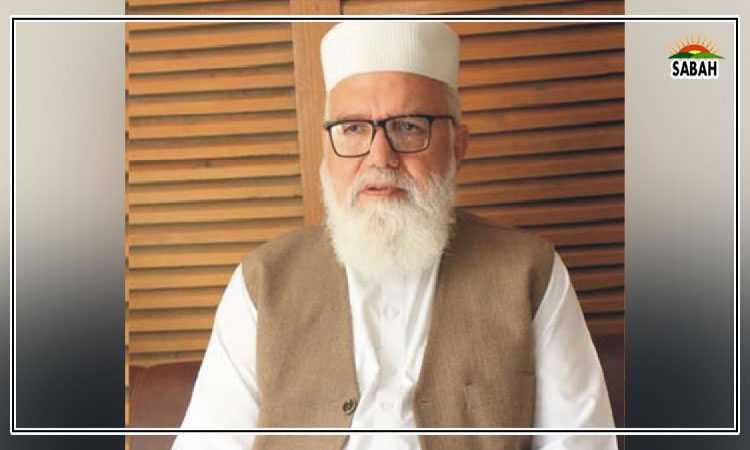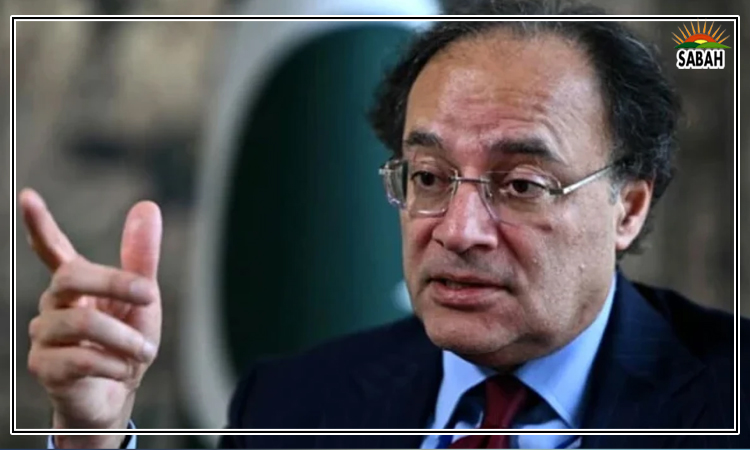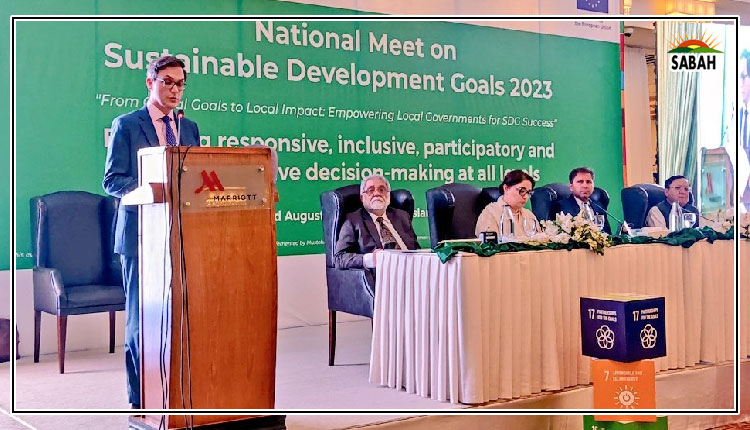Lawmakers call for expanding scope of Article 140-A of the Constitution for a stable, empowered & permanent LG system across Pakistan
ISLAMABAD, August 03 (SABAH): Lawmakers on Thursday called for expanding the scope of Article 140-A of the Constitution for a stable, empowered, and permanent local government system across Pakistan, terming it critical to meet the SDGs targets by 2030.
The call was made at a National Meet on SDGs 2023 – From Global Goals to Local Impact: Empowering Local Governments for SDG Success. The daylong meeting, organized by the National Assembly’s SDGs Secretariat and the EU-funded Mustehkam Parliamaan and GIZ-Participatory Local Governance Programme, was also addressed by MNA Romina Khurshid Alam, Convener of the SDGs Task Force / Special Assistant to Prime Minister, Sven Ruesch, Acting Head of Cooperation, European Union Delegation to Pakistan, and Helene Paust, First Secretary of Development Cooperation, German Embassy, Islamabad.
Lawmakers proposed and finalized amendments to Article 140-A. The amendments called for devolving local government’s powers and authority to enable them to function as institutions of self-government, ensuring continuity by holding elections regularly. At the end of the National Meet, the proposed amendments to article 140-A were handed over to Minister for Law and Justice/Senator Azam NazeerTarar.
In her inaugural address, Convener National Parliamentary Taskforce on SDGs/SAPM Romina Khurshid Alam said the local government system was central to a well-functioning democracy. She added that the local governments can play a crucial role in the localization of SDGs, which is critical to meeting the development agenda by 2030.
She said that the local government has the potential to directly impact health, education, economic, and social sectors, contributing to poverty alleviation, gender inclusivity, and industrial innovation. The National Assembly SDG Secretariat is actively engaging with the provinces on the localization of SDGs. She added that the local governments need to streamline SDG targets in their development plans. As Parliamentarians and government representatives, we can ensure an autonomous and inclusive local government by facilitating the devolution of power.
Parliamentarians, experts, and local government representatives from the four provinces discussed the role of empowered local bodies in achieving SDGs while focusing on various themes crucial to each province.
The four breakout sessions focused on empowering local governments in Punjab, climate change control and mitigation in Sindh through a bottom-up approach, developing local leadership in Khyber Pakhtunkhwa to reduce inequalities, and including communities to ensure collaborative governance in Balochistan.
Sven Ruesch emphasized the crucial role of effective local governance in fostering democracy and citizen well-being in Pakistan. He highlighted that the EU is committed to a stable, democratic, and pluralistic Pakistan that benefits from its full economic potential by supporting sustainable and inclusive development for all its citizens. The EU provides Pakistan with about €100 million annually in grants for development and cooperation, which includes support to strengthen good governance and democratic institutions. He acknowledged the commitment of the high-level participants to democratic local government in Pakistan.
Helene Paust commended the National Meet on SDGs for empowering local governments. She highlighted Germany’s strong diplomatic ties with Pakistan and its commitment to sustainable economic development. She emphasized Germany’s assistance to provincial and local governments in governance and capacity development.
In his concluding remarks, Minister for Law and Justice Azam NazeerTarrar termed local governments imperative for serving the citizens. The minister assured the participants of the National Meet for presenting the proposed amendments in the Senate, adding that he would be available for any deliberations.




